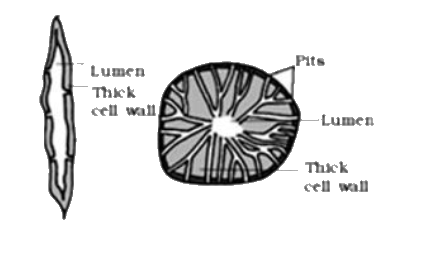The eukaryotic cells have all of the following except
Peptidoglycan in cell wall
80 S ribosome
Nuclear membrane
Mitochondria
The correct Answer is:A
To solve the question "The eukaryotic cells have all of the following except," we need to analyze the characteristics of eukaryotic cells and identify which option does not belong to them. Here’s a step-by-step breakdown of the solution:
Step 1: Understand the Definition of Eukaryotic Cells
Eukaryotic cells are defined as cells that contain a true nucleus and membrane-bound organelles. This distinguishes them from prokaryotic cells, which lack these features.
Hint: Remember that eukaryotic cells have a defined nucleus and organelles enclosed by membranes.
Step 2: Identify Key Features of Eukaryotic Cells
Eukaryotic cells typically have:
- A true nucleus
- Membrane-bound organelles (like mitochondria, endoplasmic reticulum, Golgi apparatus, etc.)
- Ribosomes (specifically 80S ribosomes, and in some organelles like mitochondria, 70S ribosomes)
Hint: Focus on the organelles and structures that are unique to eukaryotic cells.
Step 3: Examine the Options Given
The question implies that there are several options provided, and we need to identify which one is not a characteristic of eukaryotic cells. One of the common options that may appear is "peptidoglycan."
Hint: Peptidoglycan is a component of bacterial cell walls, not eukaryotic cells.
Step 4: Compare with Prokaryotic Cells
Prokaryotic cells (like bacteria) have a cell wall made of peptidoglycan, which is not found in eukaryotic cells. This is a key distinction that helps us identify the correct answer.
Hint: Remember that eukaryotic cells do not have peptidoglycan in their cell walls.
Step 5: Conclude the Answer
Based on the analysis, the correct answer to the question is that eukaryotic cells do not have peptidoglycan in their structure. Therefore, the option that states "peptidoglycan" is the correct choice for what eukaryotic cells lack.
Final Answer: Eukaryotic cells have all of the following except peptidoglycan.
Eukaryotic cells are defined as cells that contain a true nucleus and membrane-bound organelles. This distinguishes them from prokaryotic cells, which lack these features.
Eukaryotic cells typically have:
- A true nucleus
- Membrane-bound organelles (like mitochondria, endoplasmic reticulum, Golgi apparatus, etc.)
- Ribosomes (specifically 80S ribosomes, and in some organelles like mitochondria, 70S ribosomes)
The question implies that there are several options provided, and we need to identify which one is not a characteristic of eukaryotic cells. One of the common options that may appear is "peptidoglycan."
Prokaryotic cells (like bacteria) have a cell wall made of peptidoglycan, which is not found in eukaryotic cells. This is a key distinction that helps us identify the correct answer.
Based on the analysis, the correct answer to the question is that eukaryotic cells do not have peptidoglycan in their structure. Therefore, the option that states "peptidoglycan" is the correct choice for what eukaryotic cells lack.
Topper's Solved these Questions
- STRUCTURE OF THE CELLBOOK - DINESH PUBLICATION ENGLISHCHAPTER - STRUCTURE OF THE CELLEXERCISE - Check your Grasp
17 Videos
- STRUCTURAL ORGANISATION IN ANIMALS BOOK - DINESH PUBLICATION ENGLISHCHAPTER - STRUCTURAL ORGANISATION IN ANIMALS EXERCISE - Check your grasp
10 Videos
- THE CELL : THE BASIC UNIT OF LIFE BOOK - DINESH PUBLICATION ENGLISHCHAPTER - THE CELL : THE BASIC UNIT OF LIFE EXERCISE - CHECK YOUR GRASP
12 Videos
Similar Questions
Knowledge Check
Darwinism explains all the following except
AWithin each species, there are variationsBOrganisms tend to produce more number of offspring that can surviveCOffspring with better traits that overcome competition are best suited for the environmentDVariations are inherited from parents to offspring through genesDarwinism explains all the following except
AWithin each species, there are variationsBOrganisms tend to produce more number of offspring that can surviveCOffspring with better traits that overcome competition are best suited for the environmentDVariations are inherited from parents to offspring through genes
All of the following are true except
View SolutionThe serum has all of the following except
View SolutionBiogas includes all of the following, except
View SolutionGiven type of plant cells are found in all of the following , except

View SolutionCancer is caused by all of the following except
View SolutionKidney secretes all the following except
View Solution
